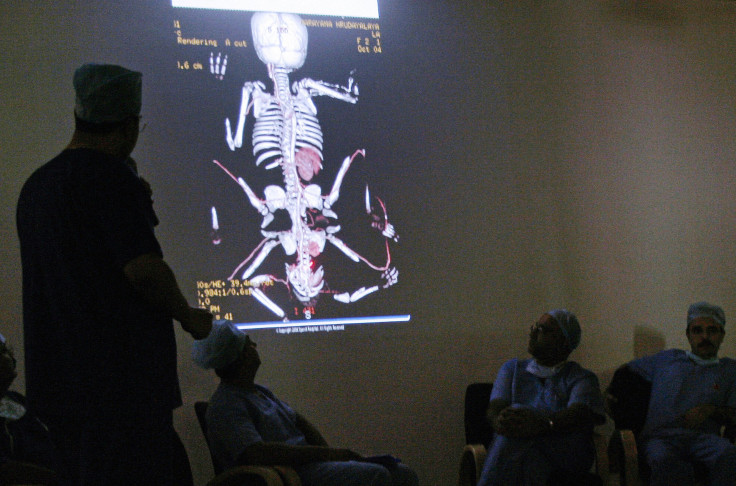Conjoined Twins Successfully Separated After 6-Hour Surgery, Good Chance Of Full Recovery

Doctors in Australia have successfully separated conjoined 15-month old sisters Nima and Dawa following an almost six-hour surgery late Thursday. Four surgeons and a team of about 18 medical staff at the Royal Children’s hospital in Melbourne conducted the surgery on the girls, who were from Bhutan.
The twins were joined from the lower chest to just above the pelvis and shared a liver. The surgery was initially planned for October but was postponed after it was revealed the sisters were not ready for the operation and needed extra nutritional support.
Lead paediatric surgeon Joe Crameri said after the surgery the operation was shorter than expected and the twins were "doing very well."
Crameri had earlier said the challenges of the surgery would depend on where the girls were connected, with the team unsure if they shared a bowel.
"There weren't any things inside the girls' tummies that we weren't really prepared for," he later said.
"We saw two young girls who were very ready for their surgery, who were able to cope very well with the surgery and are currently in our recovery doing very well," Crameri reportedly added. "We didn't find surprises, we knew the liver would be connected ... it was divided successfully without any major bleeding."
According to reports, both girls have had their breathing tubes removed since the surgery and neither are in intensive care.
Crameri thanked the surgical team, and said the twins' mother, Bhumchu Zangmo, was "smiling, very happy and grateful."
The Bhutanese family was brought to Australia by Children First Foundation, an Australian-based charity. The state of Victoria has offered to cover $255,000 cost of the operation.
Elizabeth Lodge, from the charity, said Zangmo had felt "a little bit scared," but had shown "extraordinary calmness" before the procedure.
"Bhumchu has seen her girls and given each a kiss… each sleeping apart for the first time," it said in a statement.
Conjoined twins are born once every 200,000 births, though many don’t survive for long, according to the University of Maryland Medical Center. An estimated 40 to 60 percent are stillborn, while another 35 percent only survive a single day. The survival rate overall ranges between five and 25 percent.
© Copyright IBTimes 2024. All rights reserved.





















